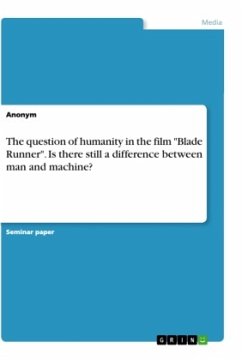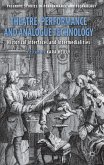In this book Willis Peter Bilderback examines two
discursive
tendencies found in the American Musical Film during
the period
1929-1935. The first is a tendency toward the
technological
sublime as displayed by the films that Busby Berkeley
choreographed for Warner Brothers studios. The second
is the
eroticization of the primitive as found in a
significant number of pre-code Hollywood Musicals. Bilderback unpacks the
meaning of
these discourses through a close analysis of the
films, and by
referencing the cultural, economic and political
history of the United
States during the early part of the
twentieth-century, and the 1930s
in particular.
Bilderback finds a parallel between Fordist
production methods and
the kind of disciplines the body is subjected to in
Berkeley s
elaborate production numbers, that parallels the
American public s
own complicated, ambivalent relationship to
technology and
industry during the Depression. Additionally, he
finds in the eroticization of the primitive evident in many pre-code Musicals,
an alternative relationship to modernity in which the primitive is
imagined as modernity s vital, libidinal other.
discursive
tendencies found in the American Musical Film during
the period
1929-1935. The first is a tendency toward the
technological
sublime as displayed by the films that Busby Berkeley
choreographed for Warner Brothers studios. The second
is the
eroticization of the primitive as found in a
significant number of pre-code Hollywood Musicals. Bilderback unpacks the
meaning of
these discourses through a close analysis of the
films, and by
referencing the cultural, economic and political
history of the United
States during the early part of the
twentieth-century, and the 1930s
in particular.
Bilderback finds a parallel between Fordist
production methods and
the kind of disciplines the body is subjected to in
Berkeley s
elaborate production numbers, that parallels the
American public s
own complicated, ambivalent relationship to
technology and
industry during the Depression. Additionally, he
finds in the eroticization of the primitive evident in many pre-code Musicals,
an alternative relationship to modernity in which the primitive is
imagined as modernity s vital, libidinal other.








